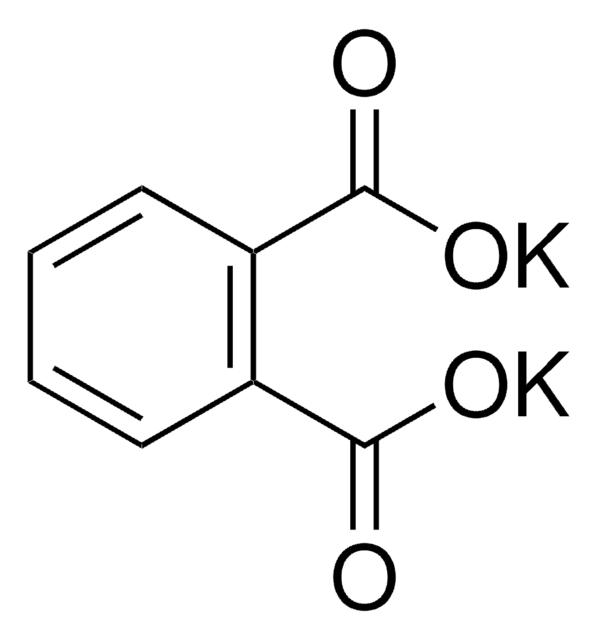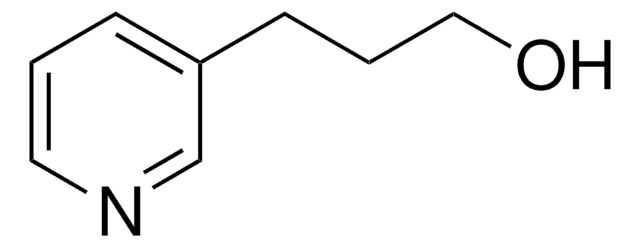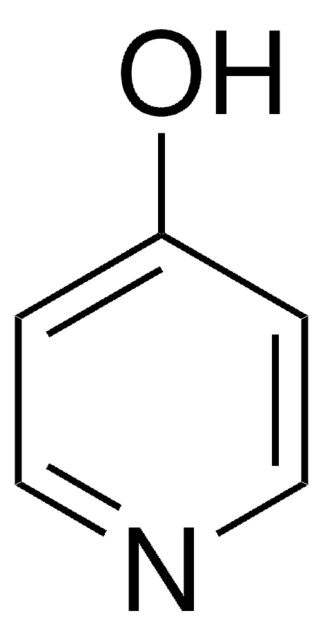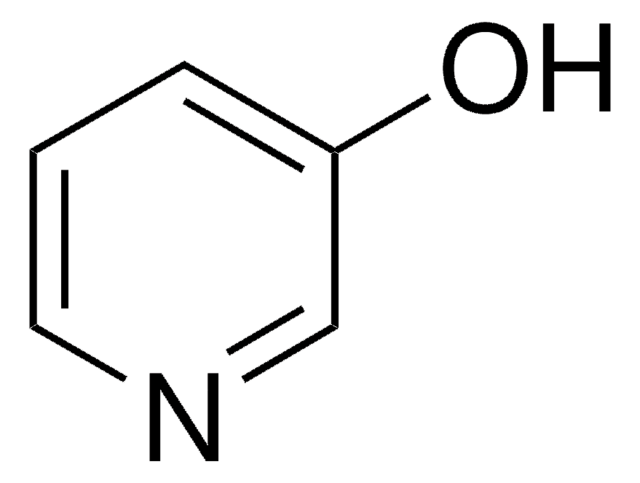385646
4-Pyridinepropanol
96%
Synonym(s):
3-(4-Pyridyl)-1-propanol
Sign Into View Organizational & Contract Pricing
All Photos(3)
About This Item
Empirical Formula (Hill Notation):
C8H11NO
CAS Number:
Molecular Weight:
137.18
EC Number:
MDL number:
UNSPSC Code:
12352100
PubChem Substance ID:
NACRES:
NA.22
Recommended Products
Quality Level
Assay
96%
bp
289 °C (lit.)
mp
35-39 °C (lit.)
density
1.061 g/mL at 25 °C (lit.)
functional group
hydroxyl
SMILES string
OCCCc1ccncc1
InChI
1S/C8H11NO/c10-7-1-2-8-3-5-9-6-4-8/h3-6,10H,1-2,7H2
InChI key
PZVZGDBCMQBRMA-UHFFFAOYSA-N
Application
Used to construct a linear axle containing perfluoro stoppers in the synthesis of a rotaxane from dibenzo-24-crown-8.
Signal Word
Warning
Hazard Statements
Precautionary Statements
Hazard Classifications
Eye Irrit. 2 - Skin Irrit. 2 - STOT SE 3
Storage Class Code
10 - Combustible liquids
WGK
WGK 3
Flash Point(F)
235.4 °F - closed cup
Flash Point(C)
113 °C - closed cup
Personal Protective Equipment
dust mask type N95 (US), Eyeshields, Gloves
Choose from one of the most recent versions:
Already Own This Product?
Find documentation for the products that you have recently purchased in the Document Library.
Eric J Mahan et al.
Organic letters, 8(22), 5085-5088 (2006-10-20)
A novel [2]-rotaxane has been prepared in which perfluoropropyl stoppers have been utilized as electronic blocking groups. To further investigate this capability, a linear compound that was precapped with perfluoropropyl groups was also prepared. This compound did not demonstrate rotaxane
Jin Matsumoto et al.
Journal of photochemistry and photobiology. B, Biology, 168, 124-131 (2017-02-20)
Activity of singlet oxygen sensitizers for photoinactivation of bacteria and photodynamic therapy of tumor cells has been evaluated using nonpathogenic model cells, such as Escherichia coli, Saccharomyces cerevisiae, and HeLa cells. Among them, E. coli, gram-negative bacterium, has complex membrane
Our team of scientists has experience in all areas of research including Life Science, Material Science, Chemical Synthesis, Chromatography, Analytical and many others.
Contact Technical Service









